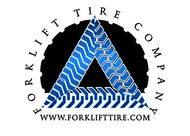19th Mar 2025
Skid Steer loaders are essential in industries such as construction, agriculture, and landscaping. Their compact design and maneuverability allow them to operate efficiently in confined spaces. With the growing demand for Skid Steer loaders, the market is projected to reach $2.95 billion by 2032 at a 2.3% CAGR. However, the efficiency of a Skid Steer loader heavily depends on the quality of its wheels. Selecting the right Skid Steer wheels enhances performance, durability, and overall productivity. In this article, we will guide you through the essential factors to consider when choosing Skid Steer wheels and explain their impact on loader efficiency.
How to Choose the Best Skid Steer Wheels
Selecting the right Skid Steer tires and wheels is crucial for optimal performance. Here are key factors to consider:
-
Type of Tires
- Flat-Proof Tires: These airless tires come without inner tubes, making them puncture-resistant and highly durable. They are ideal for construction and landscaping applications, particularly on smooth, flat surfaces.
- Pneumatic Tires: These air-filled tires offer better traction and shock absorption, making them suitable for rough and uneven terrain. Choose these if your loader frequently operates on unpredictable surfaces.
- Solid Rubber Tires: A middle-ground option that combines durability with decent ride comfort. These tires resist punctures and are commonly used in industrial applications where frequent tire changes are not feasible.
- Assess your operational environment before selecting the best tire type for your Skid Steer loader.
-
Industry-Specific Requirements
- Different industries require specialized Skid Steer wheels. For example:
- Construction: Heavy-duty tires with thick treads to handle debris and rugged terrain.
- Mining: Extreme durability to withstand harsh environments and excessive weight loads.
- Landscaping: Tires with enhanced traction to prevent turf damage and improve maneuverability.
- Recycling & Waste Management: Tires with puncture-resistant features to handle sharp objects.
- Choosing wheels tailored to your industry ensures better traction, durability, and efficiency.
- Different industries require specialized Skid Steer wheels. For example:
-
Tread Options
- Off-Road Treads: Designed for rugged terrain, providing superior traction and durability.
- On-Road Treads: Optimized for smooth surfaces, minimizing wear and tear.
- All-Terrain Treads: A versatile option suitable for both rough and smooth surfaces.
- Mud and Snow Treads: Designed for extreme weather conditions, ensuring traction and performance in slippery environments.
- Selecting the correct tread pattern enhances stability and performance based on the terrain you operate on.
-
Rim Diameter and Compatibility
- Measure the rim diameter accurately to ensure a proper fit.
- Ensure that the wheels match the model of your Skid Steer loader for seamless performance and safety.
- Consult the equipment manual or a professional supplier to verify compatibility.
How Skid Steer Wheels Impact Loader Performance
The quality of Skid Steer wheels directly affects the machine’s efficiency and safety. Here’s why choosing the right wheels is essential:
-
Enhanced Performance and Efficiency
- High-quality wheels optimize stability, control, and traction, particularly on slippery or uneven surfaces.
- Properly selected wheels help maximize fuel efficiency and reduce wear on the loader’s engine and components.
- The right tires also improve maneuverability, allowing the operator to complete tasks more efficiently.
-
Terrain Compatibility
- Skid Steer loaders operate on different surfaces, from mud and gravel to concrete and asphalt.
- Choosing the wrong wheels can decrease performance, cause excessive wear, and even increase the risk of accidents.
- For specialized environments, such as snowy or icy conditions, using specialized skid steer tires is crucial for maintaining safety and control.
-
Load Capacity and Stability
- Skid Steer wheels come with varied load ratings. Selecting wheels that match your loader’s capacity enhances stability and prevents machine imbalance.
- Ensuring the right load capacity improves safety and prevents unnecessary mechanical strain.
- Overloading tires beyond their rated capacity can lead to premature wear and potential failures, compromising efficiency.
-
Operator Comfort and Safety
- The right wheels minimize vibrations and shocks, reducing operator fatigue and enhancing productivity.
- A smoother ride also extends the life of the loader by reducing stress on its suspension and frame.
- Tires with shock-absorbing properties contribute to better overall control, making operation safer and more comfortable.
Maintenance Tips for Skid Steer Wheels
To extend the lifespan and efficiency of your Skid Steer wheels, follow these essential maintenance practices:
- Regular Inspections: Check for signs of wear, cracks, or punctures to prevent unexpected failures.
- Proper Inflation: For pneumatic tires, maintaining the correct air pressure ensures optimal performance and longevity.
- Cleaning: Remove debris, mud, and buildup from the treads to maintain traction and prevent unnecessary wear.
- Rotation and Alignment: Rotate the tires periodically to ensure even wear and prolong usability.
- Timely Replacements: Replace worn-out tires before they affect loader performance or compromise safety.
Conclusion
Investing in high-quality Skid Steer wheels enhances loader performance, reduces maintenance costs, and increases operational efficiency. By selecting the right tires and wheels, you ensure long-term durability, equipment longevity, and maximum return on investment. When purchasing Skid Steer tires, always choose a reputable supplier to avoid low-quality products that could compromise your loader’s efficiency. Follow these expert tips and make an informed decision for better performance and productivity in your operations!






